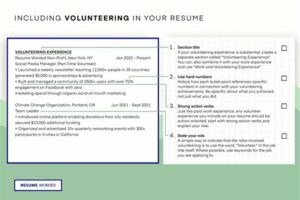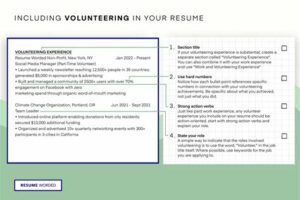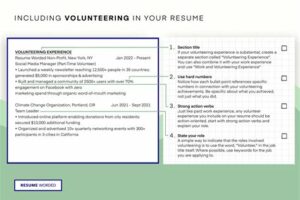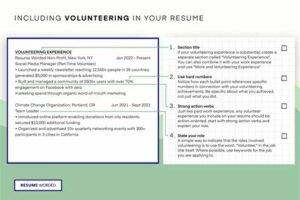Table of Contents
Engage in natural disasters volunteer work and make a positive impact on affected communities. Join our team and help provide relief, support, and essential resources to those in need during challenging times. Contribute your skills and compassion to alleviate suffering and rebuild lives after earthquakes, hurricanes, wildfires, and other catastrophic events. Make a difference today!
Volunteering for natural disaster relief efforts is a noble and impactful way to make a difference in the lives of those affected by unforeseen calamities. Whether it be earthquakes, hurricanes, wildfires, or floods, the devastation caused by these events leaves communities shattered and in desperate need of support. By offering your time, skills, and resources as a volunteer, you can play a crucial role in helping affected individuals rebuild their lives and find hope amidst the chaos. With the ability to contribute to both immediate relief efforts and long-term recovery projects, engaging in natural disaster volunteer work allows you to make a lasting impact on the lives of those in dire need.
The Importance of Natural Disaster Volunteer Work
When natural disasters strike, they often leave behind a trail of destruction and despair. From hurricanes and earthquakes to floods and wildfires, these events can have devastating consequences for affected communities. In times of crisis, volunteers play a crucial role in providing immediate assistance and helping affected individuals and families rebuild their lives. Natural disaster volunteer work not only provides much-needed support to those in need but also fosters a sense of community and resilience in the face of adversity.
Types of Natural Disaster Volunteer Work
Natural disaster volunteer work encompasses a wide range of activities that are tailored to the specific needs of each disaster-stricken area. Some common types of volunteer work include:
- Emergency response: Volunteers assist in search and rescue efforts, distribute emergency supplies, and provide immediate aid to survivors.
- Cleanup and rebuilding: Volunteers help in removing debris, repairing infrastructure, and rebuilding homes and communities.
- Shelter support: Volunteers provide assistance in setting up and managing temporary shelters for displaced individuals and families.
- Emotional support: Volunteers offer counseling, emotional support, and mental health services to those affected by the disaster.
- Logistics and coordination: Volunteers help with logistics, communication, and coordination efforts to ensure efficient distribution of resources and aid.
The Benefits of Natural Disaster Volunteer Work
Natural disaster volunteer work offers numerous benefits, both for the volunteers themselves and the communities they serve:
- Personal growth: Volunteering provides an opportunity for personal growth and self-discovery. It allows individuals to develop new skills, gain valuable experience, and build resilience.
- Social impact: By volunteering their time and effort, individuals make a tangible difference in the lives of those affected by natural disasters. They contribute to the collective recovery and rebuilding process.
- Community building: Natural disaster volunteer work fosters a sense of community and solidarity. It brings people together, promotes empathy and understanding, and strengthens social bonds.
- Enhanced perspective: Volunteering exposes individuals to different cultures, perspectives, and realities. It broadens their worldview and deepens their understanding of the challenges faced by others.
- Networking opportunities: Volunteering often allows individuals to connect with like-minded people, organizations, and professionals in related fields. These connections can lead to future collaborations and career opportunities.
How to Get Involved in Natural Disaster Volunteer Work
If you are interested in participating in natural disaster volunteer work, here are some steps you can take:
- Research local organizations: Look for reputable organizations that specialize in disaster response and recovery in your area. Research their mission, values, and volunteer opportunities.
- Attend training programs: Many organizations offer training programs to equip volunteers with the necessary skills and knowledge for disaster response. Attend these programs to enhance your abilities.
- Register as a volunteer: Sign up with your chosen organization and complete any required background checks or paperwork.
- Stay informed: Keep yourself updated on the latest news and developments in the field of disaster response. This will help you understand the current needs and challenges faced by affected communities.
- Be flexible and adaptable: Natural disasters are unpredictable, and volunteer work may require flexibility and adaptability. Be prepared to work in challenging conditions and adjust your plans accordingly.
- Spread the word: Encourage others to get involved in natural disaster volunteer work. Share your experiences, raise awareness, and inspire others to make a difference.
Conclusion
Natural disaster volunteer work is a vital component of disaster response and recovery efforts. It provides immediate assistance and long-term support to those affected by natural disasters, while also fostering community resilience and solidarity. By engaging in volunteer work, individuals can contribute to the collective rebuilding process, gain valuable experience, and make a positive impact on the lives of others. If you have the opportunity, consider getting involved in natural disaster volunteer work and be a part of the solution during times of crisis.
Overview of Natural Disasters Volunteer Work
Natural disasters can have devastating impacts on communities, and volunteering to aid in their recovery is crucial. By engaging in natural disaster volunteer work, individuals can support affected regions by providing immediate relief, assisting with cleanup efforts, and offering emotional support to those affected.
Importance of Preparedness in Natural Disasters Volunteer Work
Volunteering in natural disasters requires individuals to prioritize preparedness. Volunteers must possess essential emergency response skills, such as basic medical training, first-aid certification, and an understanding of disaster management protocols. This preparedness ensures the safety of both volunteers and the communities they aim to help.
Roles and Responsibilities of Natural Disasters Volunteers
Natural disaster volunteers contribute to relief efforts by performing various roles and responsibilities. These may include assisting in emergency shelters and distribution centers, coordinating logistics, providing clean water and food supplies, offering psychological support, and participating in search and rescue missions when necessary.
Collaboration with Local and Global Organizations
In natural disaster volunteer work, collaboration with local and global organizations plays a vital role. Volunteers often work hand-in-hand with established disaster response agencies, non-profit organizations, and government agencies to ensure efforts are streamlined and resources are efficiently utilized for maximum impact and effectiveness.
Challenges Faced by Natural Disasters Volunteers
Natural disaster volunteer work can be physically and emotionally challenging. Volunteers may encounter hazardous conditions, extreme weather, limited resources, and traumatic experiences while aiding affected communities. It’s essential for volunteers to undergo appropriate training, receive mental health support, and practice self-care to effectively navigate these challenges.
Social and Community Benefits of Natural Disasters Volunteer Work
Beyond immediate relief efforts, natural disasters volunteer work fosters a sense of unity and community resilience. Volunteers provide affected communities with hope, support, and encouragement during their darkest times. These acts of selflessness inspire and create a positive ripple effect, strengthening social bonds and fostering a sense of collective responsibility.
Personal and Professional Growth Opportunities
Volunteering in natural disasters presents individuals with significant personal and professional growth opportunities. Volunteers can acquire valuable skills, such as leadership, problem-solving, adaptability, and cultural sensitivity, which are transferable to various career paths. Additionally, this volunteer work allows individuals to gain a deeper understanding of community dynamics, disaster response strategies, and humanitarian efforts.
Long-term Recovery and Sustainable Volunteering
Natural disasters often have long-lasting effects on communities, requiring ongoing recovery efforts. Sustainable volunteer initiatives focus on the long-term rebuilding process, which may involve rebuilding infrastructure, promoting eco-friendly practices, advocating for policy changes, and ensuring the overall resilience of affected regions. Volunteers can play a crucial role in supporting these sustained efforts, making a lasting impact on disaster-affected communities.
As a professional, I strongly believe that volunteering in natural disaster relief efforts is not only a noble act but also a crucial component in providing immediate aid and long-term support to affected communities. The following points outline the significance of engaging in such volunteer work:
1. Humanitarian Duty:
- Volunteering in natural disaster relief work is a reflection of our shared humanity and compassion towards fellow human beings in times of crisis.
- It is our moral responsibility to lend a helping hand to those who have suffered from the devastating consequences of natural disasters.
2. Immediate Assistance:
- Volunteers play a crucial role in providing immediate assistance, such as search and rescue operations, first aid, and distributing essential supplies like food, water, and medical aid.
- Their presence on the ground helps bridge the gap between the occurrence of a disaster and the arrival of professional emergency response teams.
3. Community Support and Resilience:
- Volunteer work in natural disaster relief fosters a sense of community support and resilience.
- By actively participating in recovery efforts, volunteers encourage affected communities to come together, rebuild, and heal.
4. Skill Utilization:
- Volunteering provides an opportunity for professionals with specific skill sets, such as medical personnel, engineers, or logistics experts, to utilize their expertise in a meaningful way.
- Their specialized knowledge can significantly contribute to the effectiveness and efficiency of relief operations.
5. Personal Growth and Development:
- Engaging in natural disaster volunteer work allows individuals to develop valuable skills such as teamwork, adaptability, problem-solving, and leadership.
- These experiences can enhance professional growth and broaden one’s perspective on global issues and social responsibility.
6. Lasting Impact:
- Volunteering in natural disaster relief work goes beyond immediate assistance and can have a lasting impact on affected communities.
- By participating in reconstruction projects, community development initiatives, and educational programs, volunteers contribute to long-term recovery and resilience.
In conclusion, volunteering in natural disaster relief work is a vital endeavor that not only fulfills our humanitarian duty but also provides immediate aid, supports community resilience, utilizes specialized skills, promotes personal growth, and leaves a lasting impact. It is an opportunity for professionals to make a profound difference in the lives of those affected by natural disasters.
Thank you for taking the time to visit our blog and learn more about the importance of volunteering in natural disaster relief efforts. We hope that the information provided has shed light on the critical role that volunteers play in providing assistance and support to affected communities. By dedicating their time, skills, and compassion, these individuals make a significant impact in helping communities recover and rebuild after devastating events.
Volunteering in natural disaster relief work is not only a noble endeavor but also an opportunity for personal growth and development. It allows individuals to step outside of their comfort zones, challenge themselves, and make a positive difference in the lives of others. Whether you have prior experience in disaster response or are new to this field, there are various ways you can get involved and contribute your skills and expertise.
One way to engage in natural disaster volunteer work is by joining local or national organizations that specialize in disaster response and recovery. These organizations often provide training and resources to equip volunteers with the necessary knowledge and skills to effectively assist communities in need. From distributing emergency supplies and providing medical care to offering emotional support and helping with infrastructure repair, there are diverse roles available for volunteers of different backgrounds and interests.
Additionally, if you are unable to commit to long-term volunteer work, there are still plenty of ways to contribute in times of crisis. Donating to reputable disaster relief organizations, fundraising for those affected, or even spreading awareness about ongoing relief efforts through social media can make a significant difference. Every small act of kindness and support counts, and together, we can create a stronger, more resilient world.
In conclusion, natural disasters can have devastating impacts on communities and individuals. However, through volunteer work and collective efforts, we can provide much-needed help and support to those who need it the most. We encourage you to explore volunteer opportunities, join organizations, or contribute in any way you can to assist in natural disaster relief. Together, we can make a positive impact and help build a safer and more resilient future for all. Thank you once again for visiting our blog, and we hope to have inspired you to take action and get involved in volunteering for natural disaster relief work..
When it comes to natural disasters, people often wonder about how they can contribute and help those affected. Volunteering is a popular way for individuals to make a difference in the lives of disaster victims and assist in the recovery efforts. Here are some common questions people ask about natural disasters volunteer work:
How can I volunteer for natural disaster relief?
Volunteering for natural disaster relief can be done through various organizations and initiatives. You can start by researching local and national relief organizations that specialize in disaster response. Many of these organizations have dedicated volunteer programs that you can join. Additionally, you can reach out to your local community centers, churches, or emergency management offices to inquire about volunteering opportunities.
What types of volunteer work can I do during natural disasters?
There are several types of volunteer work you can engage in during natural disasters. Some common roles include providing shelter assistance, distributing food and supplies, helping with debris cleanup, offering emotional support to survivors, participating in search and rescue operations, and providing medical aid. The specific tasks will depend on the nature of the disaster and the needs of the affected community.
Do I need any special skills or training to volunteer in disaster relief efforts?
While certain roles may require specific skills or training, there are usually opportunities for individuals without specialized expertise to contribute as well. Many organizations provide training sessions for volunteers to learn the necessary skills and protocols. However, having prior experience or qualifications in fields such as medical care, construction, counseling, or emergency response can be valuable in disaster situations.
Can I still volunteer if I am not physically able to engage in strenuous activities?
Absolutely! Not all volunteer work during natural disasters involves physically demanding tasks. There are often administrative roles that require assistance, such as coordinating logistics, managing communication channels, or organizing relief efforts. Additionally, providing emotional support to survivors or participating in fundraising campaigns are other ways to contribute without needing to engage in strenuous activities.
Are there age restrictions for volunteering in disaster relief?
Age restrictions can vary depending on the organization and the specific tasks involved. Some organizations may have minimum age requirements for certain roles due to safety concerns or legal regulations. However, there are often opportunities for individuals of all ages to contribute in some capacity. Parents or guardians may need to accompany minors, and older adults can offer valuable experience and wisdom to the relief efforts.
Remember, when volunteering for natural disaster relief, it is crucial to connect with reputable organizations and follow their guidelines and instructions. Your willingness to help and support those affected by natural disasters can make a significant difference in their lives.






